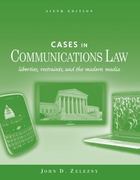Question
The terms data, information, and knowledge are often discussed as a progression. Identify a number written as such: 4018651000. If I write the number out
The terms data, information, and knowledge are often discussed as a progression. Identify a number written as such: 4018651000. If I write the number out as (401) 854-1000 would you know what the number is now? We would probably know it as a phone number, correct? The point is that data (the raw number) 'became' information when it was seen displayed in the proper context. The format provided meaning. You, as students, would know this because you had a priori knowledge of what a North American phone number would look like.
Does this mean we can only gather data if we know what to look for? If so, where does knowledge come from? What implications does this have for actual data collection? For instance, how much a priori knowledge must we have to make data gathering useful? How much a priori knowledge must we have to make data interpretation useful?
Step by Step Solution
There are 3 Steps involved in it
Step: 1

Get Instant Access to Expert-Tailored Solutions
See step-by-step solutions with expert insights and AI powered tools for academic success
Step: 2

Step: 3

Ace Your Homework with AI
Get the answers you need in no time with our AI-driven, step-by-step assistance
Get Started


